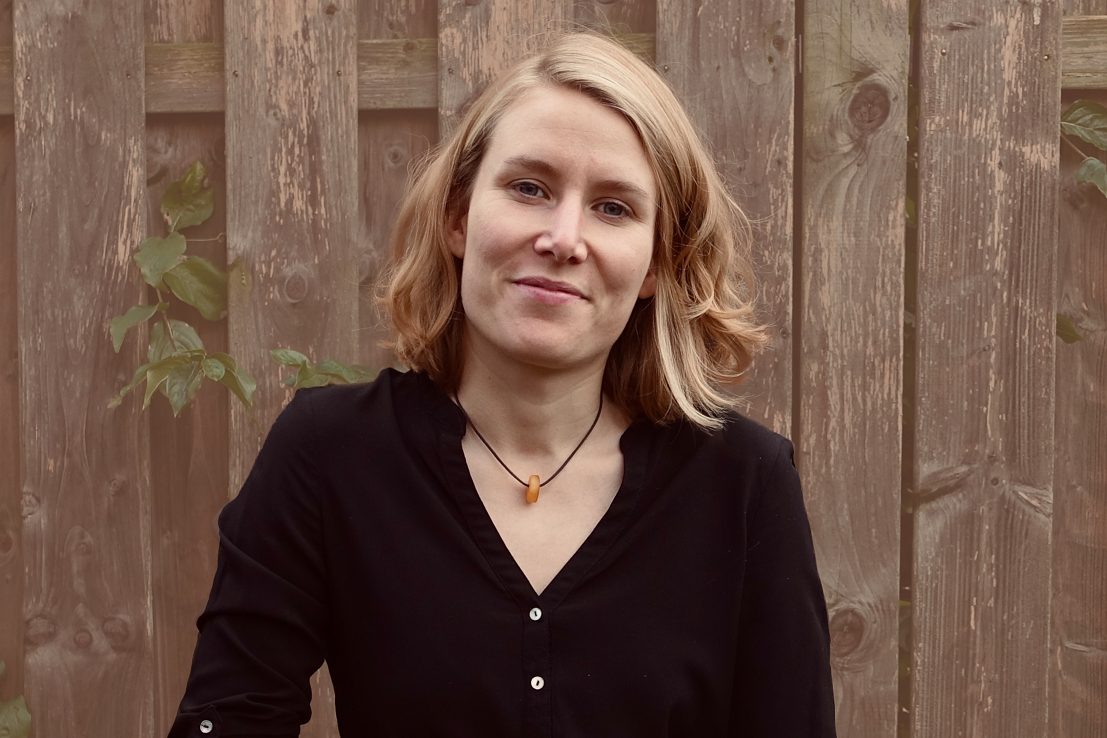An open house for homeless persons Laves Award goes to Architecture graduate Malin Meyer from TU Braunschweig
Great joy at the Department of Architecture at Technische Universität Braunschweig: this year’s Laves Award goes to an Architecture graduate from Braunschweig. Malin Meyer received the first prize of 2,000 euros for her Master’s thesis “The Reproductive House – Was ist Gemeinwohl?”. The award is presented every year by the Laves Foundation to students of Architecture, Interior Design and Landscape Architecture at universities and higher education institutions in Lower Saxony.
On Thursday evening, the Lavesstiftung invited guests to the award ceremony in the Atelier building of the Laveshaus in Hannover. The designs were presented there by the President of the Lower Saxony Chamber of Architects and Chairman of the Foundation, Robert Marlow, and the head of the jury, Professor Tatjana Sabljo from Hannover University of Applied Sciences and Arts. A total of 83 works from six universities and higher education institutions were submitted this time, more than ever before. In addition to first prize, TU Braunschweig also received an honourable mention.
When does a house become a home?
Architecture graduate Malin Meyer convinced the jury with her design, which takes up the question “What is the common good?” and envisions an open house for homeless people in the middle of Braunschweig between Oker-Ufer and Gaußberg. Her Master’s thesis, which was developed at the Institute of Building Design under Professor Dan Schürch, is a clear statement for the “housing first” concept: people in existential need should be offered real housing again without preconditions – such as having to go through rehabilitation first. The designer asks: “How much is necessary for a person to be able to settle in the world as an individual and to succeed in life? When does a house become a home?”
Malin Meyer deliberately allows different lived realities to meet at low thresholds. To achieve this, she mixes small, fully equipped individual flats for the homeless with student flats, open workshop and music rooms, greenhouses and free communal areas, among other things. In an open wooden skeleton structure, the functions are arranged in a permeable and changeable modular way. The residents can decide for themselves how much community or retreat they want. Counselling and support services are located at the entrance to the housing project.
Social responsibility of architecture
Professor Dan Schürch from the Institute of Building Design is pleased with the success: “In her Master’s thesis, Malin Meyer addresses the social responsibility of architecture and deals with the question of how a person feels who has lost everything. Homelessness is present, exclusions unfortunately normal, the existing structures limited. How can a re-entry into society take place? With her design, she succeeds in putting people and their needs in the foreground and finding adequate architectural, constructive but also socially acceptable answers. It was an honour to accompany Malin Meyer and I congratulate her on the well-deserved first prize. May her contribution make the world a little more beautiful, and may she retain sensitivity to such relevant issues in her professional future.”
The jury, headed by Professor Tatjana Sabljo, wrote in its commendation: “With this design, Malin Meyer shows a holistically conceived contribution with a high degree of sensitivity in relation to the task as well as the structural issues of resource-efficient and simple construction. The design creates atmospheres with great respect for the users and the spatial formulations that can point the way to a new place in the sense of home. These qualities in the content, design and construction are reflected in the drawings and representations. The jury is of the opinion that this project has outstanding qualities and honours it with the first prize.”
The Braunschweig students Julian Leineweber and Pascal Lumme also received an honourable mention for their design “KE park : HOME”. They developed a sustainable and contemporary concept for redensification by converting garage yards into modular flats with communal areas.
All the works are currently on display at the Atelierhaus in Hannover. The Lavesstiftung will soon release a publication with the designs.
The Laves Award
Every year, the Lavesstiftung offers the Laves Award, which is endowed with 5,000 euros. The award is given for work with high design quality and outstanding detailed solutions that also take into account the aspect of sustainability. These can be student projects in the fields of building construction, furniture construction, interior design and outdoor design. All students of Architecture, Interior Design and Landscape Architecture at universities and higher education institutions in Lower Saxony are eligible to participate.
Further information: www.lavesstiftung.de/themen-projekte/lavespreis

